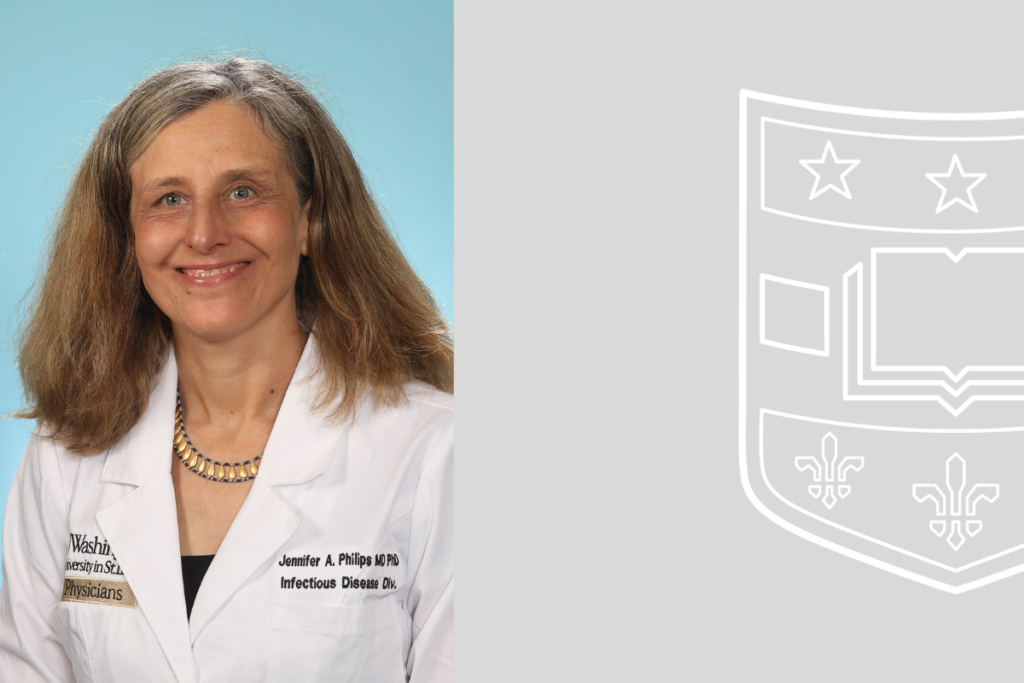Host De-ubiquitinase USP8 promotes Mycobacterium tuberculosis infection

Pallavi Chandra, PhD, an Instructor of Medicine in the Philips laboratory at WashU Medicine Division of Infectious Diseases, along with Jennifer A. Philips, MD, PhD, Theodore and Bertha Bryan Professor, Departments of Medicine and Molecular Microbiology; Co-director, Infectious Diseases Division, recently co-authored a Autophagy publication, on Mycobacterium tuberculosis (Mtb) and USP8.
Mycobacterium tuberculosis (Mtb)- the bacterium that causes tuberculosis (TB)- infects and persists within macrophages. Mtb survives in macrophages with the help of virulence factors, which it disperses into the host cell by damaging the phagosomal membrane. A recent study by Pallavi Chandra, PhD, showed that host Ubiquitin-Specific Peptidase 8 (USP8) is recruited to the compartment containing Mtb and repairs membrane damage inflicted by Mtb.

USP8 is a deubiquitinase (DUB), an enzyme that removes ubiquitin that has been added to proteins by E3 ubiquitin ligases. This study demonstrates that cells lacking USP8 are unable to repair damage to endosomal and phagosomal membranes. This causes abnormally large vesicles coated with ubiquitin to accumulate, which activates selective autophagy. During Mtb infection, this promotes clearance of the bacteria. In addition, cells lacking USP8 have elevated levels of oxidative stress, which further helps clear Mtb.
While several E3 ubiquitin ligases have been shown to play a role in selective autophagy of Mtb, this study is the first to show that Mtb exploits a host deubiquitinase to evade autophagic capture. Further, a small molecule USP8 inhibitor significantly reduces Mtb infection. There are many autophagy-activating treatments under evaluation for TB treatment. This study suggests that autophagy-enhancing treatments might be boosted by also targeting pathways that repair phagosomes.
Our study reveals, for the first time, the pivotal role of a deubiquitinase during mycobacterial infections. It establishes that USP8 plays a unique role by acting at the intersection of endomembrane repair, selective autophagy, and oxidative stress.
Jennifer A. Philips, MD, PhD

